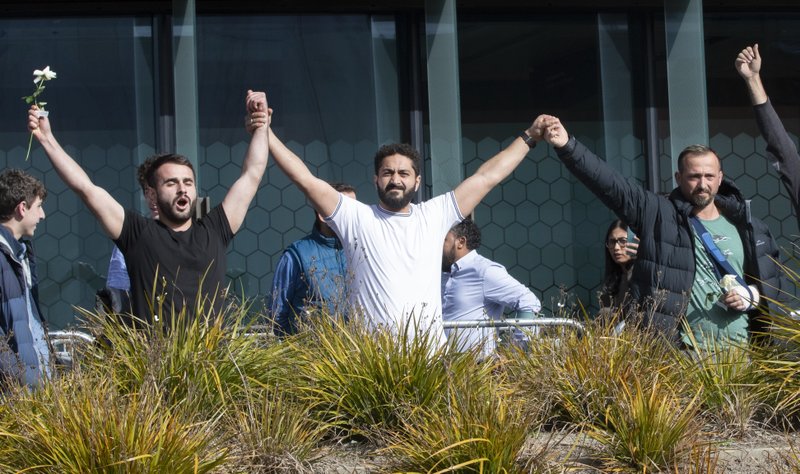The white supremacist who slaughtered 51 worshippers at two New Zealand mosques was sentenced Thursday to life in prison without the possibility of parole.
The judge imposed the maximum available sentence on 29-year-old Australian gunman Brenton Harrison Tarrant, the first time the sentence has been imposed in New Zealand.
Judge Cameron Mander said Tarrant’s crimes were so wicked that a life time in jail could not begin to atone for them. He said they had caused enormous loss and hurt and stemmed from a warped and malignant ideology.
“Your actions were inhuman,” Mander said. “You deliberately killed a 3-year-old infant as he clung to the leg of his father.”
The March 2019 attacks targeting people praying at the Al Noor and Linwood mosques shocked New Zealand and prompted new laws banning the deadliest types of semi-automatic weapons. They also prompted global changes to social media protocols after the gunman livestreamed his attack on Facebook.
During the four-day sentencing hearing, 90 survivors and family members recounted the horror of the attacks and the trauma they continue to feel.
Some chose to yell at the gunman and give him the finger. Others called him a monster, a coward, a rat. Some sung verses from the Quran or addressed him in Arabic. A few spoke softly to Tarrant, saying they forgave him.
Tarrant had earlier fired his lawyers and told the judge that he didn’t wish to speak at the hearing. A standby lawyer appointed by the court told the judge that Tarrant did not oppose a sentence of life without parole.
Mander noted that Tarrant had recently told assessors that he now rejects his extremist philosophy and considers his attacks “abhorrent and irrational.”
But Mander said the sincerity of that change of heart was questionable and Tarrant had still shown no empathy toward his victims or sorrow for what he had done.
Tarrant in March had pleaded guilty to 51 counts of murder, 40 counts of attempted murder and one count of terrorism, reversing his earlier not guilty pleas.
Prosecutors said Tarrant had flown a drone over the Al Noor mosque and researched the layout as he meticulously planned his attacks. He arrived with six guns including two AR-15s.
Crown prosecutor Mark Zarifeh said he’d aimed to kill as many people as possible.
“The offender’s actions are a painful and harrowing mark in New Zealand’s history,” he said.
Tarrant was noticeably thinner in his sentencing hearing than when he was first arrested. He didn’t show the brazenness he did at his first court appearance the day after the attacks, when he made a hand gesture sometimes adopted by white supremacists.
Dressed in a gray prison tracksuit, Tarrant showed little emotion during his sentencing. He watched the speakers, occasionally giving a small nod or covering his mouth as he laughed at jokes, often made at his expense.
Sara Qasem spoke Thursday during the four-day hearing about her beloved father Abdelfattah, who was killed in the attacks.
“All a daughter ever wants is her dad. I want to go on more road trips with him. I want to smell his garden-sourced cooking. His cologne,” she said. “I want to hear him tell me more about the olive trees in Palestine. I want to hear his voice. My dad’s voice. My baba’s voice.”
(AP)











